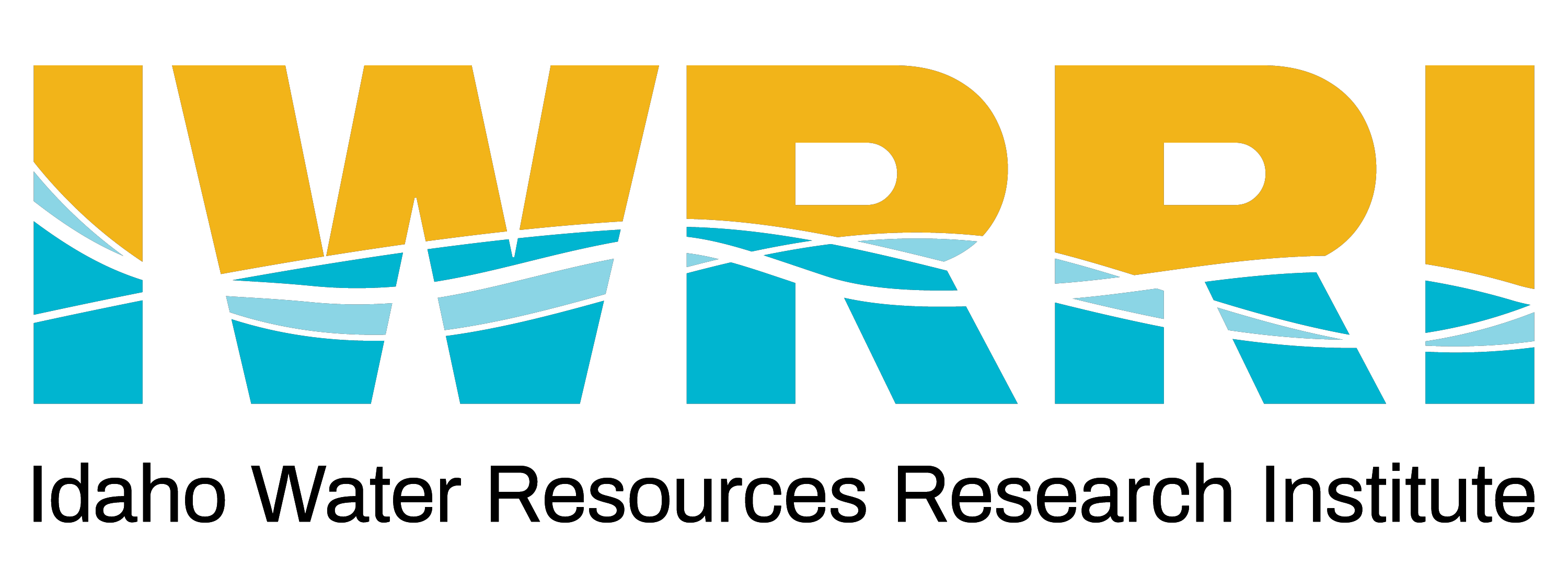A University of Idaho team, led by Professor Amin Mirkouei and supported by two recently graduated doctorate students, Rance Bare and Ethan Struhs, collaborated with the USDA Agricultural Research Service (Ken Overturf), U of I Aquaculture Research Institute (Brian Small) and the National High Magnetic Field Laboratory (Martha Chacón-Patiño, Amy Mckenna and Huan Chen) to design and custom-build an economical and sustainable water treatment system. This system was specifically developed to remove micronutrients, primarily phosphorus and nitrogen, from the wastewater of fish farms in southern Idaho (Magic Valley region). Through a series of laboratory and field studies, the team tested several unmodified and modified biochar-based water treatment systems. Their findings demonstrated that magnesium (Mg)-modified biochar, made from pinewood, effectively sequestered higher amounts of nitrogen and phosphorus over time. For more information, please check out the latest published articles at www.mdpi.com/2227-9717/11/10/2883 and www.mdpi.com/2227-9717/11/4/1029.
Similar Posts
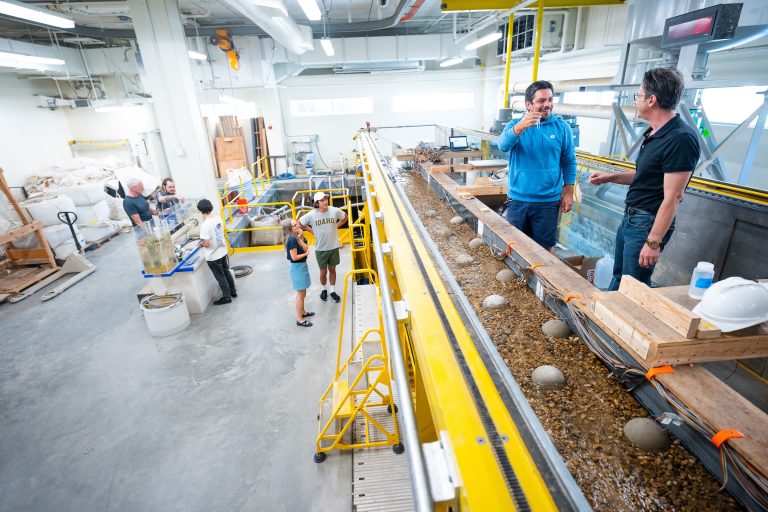
IWRRI Grant Recipients Work on Sediment Transport Physics
Gianluca Blois, a professor of mechanical engineering at the University of Idaho’s Boise campus, works at the Center for Ecohydraulics Research (CER) with students to study how water moves through streams and rivers. Their research focuses on how stationary objects, like plants, affect water flow and the movement of sediments. This study used a specialized laboratory flume—a controlled stream environment—to measure water speed and pressure in aquatic systems. While scientists have long studied how landscape features like riverbanks and terrain…

BSU Student Analyses Wildfire impacts on Snowpack
Master’s student Mason Bull recently won the Boise State University three-minute thesis competition and placed third at the state competition. Mason was partially funded by a research initiation grant from the Idaho Space Grant Consortium (Idaho NASA EPSCoR). His research is using the Landsat record to classify landscape composition and quantify landcover and vegetation change in one watershed in the Kenai Mountains of south-central Alaska and the Sawtooth Mountains of southwest Idaho. He is finding that places in Idaho that…
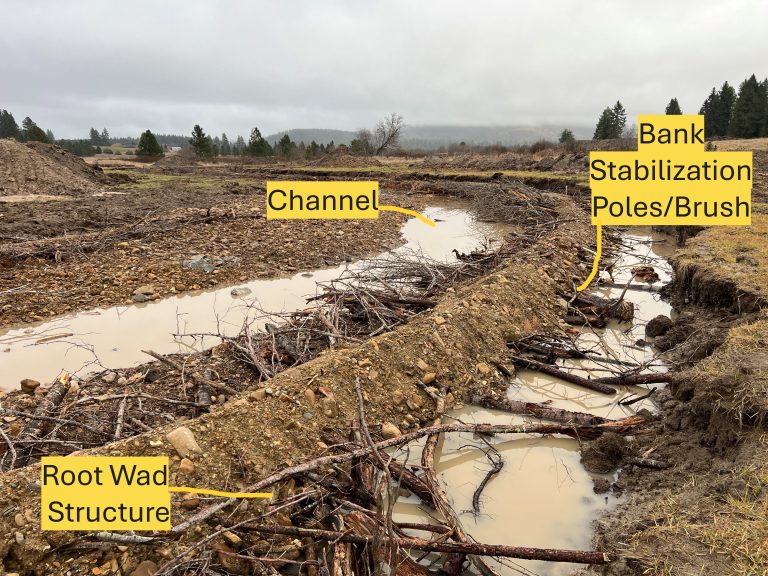
OUR GEM: k’wne’ ‘ulchiyark’wmtsut – Fisheries Restoration Connecting Two Restored Reaches
By Bruce Kinkead, Fisheries Biologist, Coeur d’Alene Tribe The Hangman Creek Fisheries Restoration Project began in 2002 and is funded by Bonneville Power Administration under the Fish Substitution Policy to compensate for lost salmon harvesting. Early research found the limiting factors to be lack of connection between channel and floodplain, lack of large woody debris (LWD), excess fine sediments, and high stream temperatures associated with a lack of tree canopy. Initial work on Hangman Creek below the Sanders townsite began…
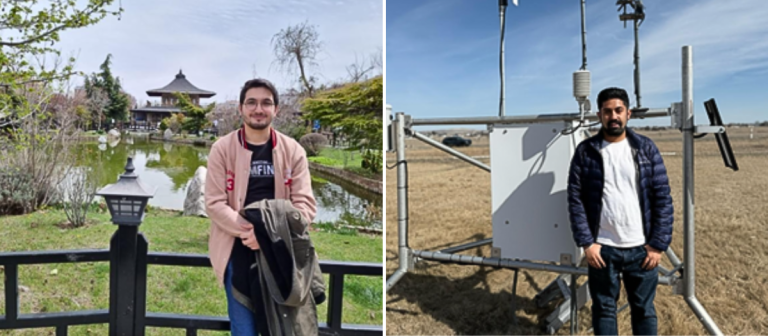
2025 recipients of the Joseph Jordan IWRRI Student Research Fellowship
The Idaho Water Resources Research Institute is proud to announce the 2025 recipients of the Joseph Jordan IWRRI Student Research Fellowship, Dinesh Gulati and Turker Anlaroglu. Established by the family of Joseph Jordan, the fellowship provides financial assistance and hands-on experience to University of Idaho students pursuing careers in water resources management. Fellows work directly with agencies, Tribes, nonprofits, and industry partners to address real-world water challenges. This year, both students contributed to a WaterSMART-funded project in collaboration with the…
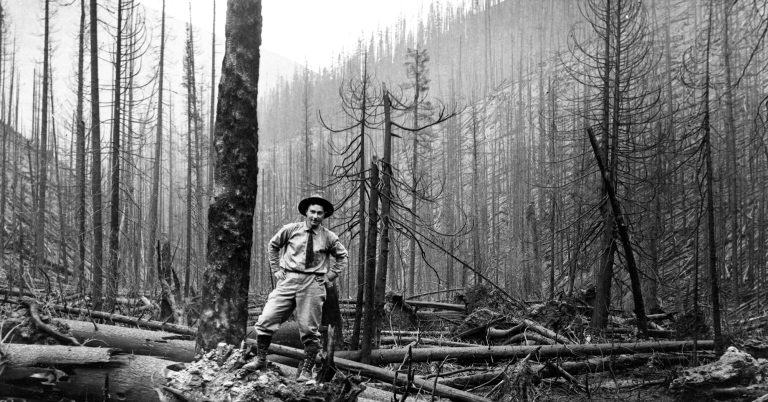
OUR GEM Ashes in the Current: The Hidden Hydrologic Legacy of the 1910 Fire
By Mark Getscher, hydrogeologist for the Coeur d’Alene Tribe More than a century after “The Big Burn” of 1910 scorched over three million acres across northern Idaho and western Montana, its legacy continues to flow through the streams and rivers of the Coeur d’Alene Basin. While most remember the fire for its devastation and heroism, far fewer realize its silent and lingering impact on water quality. High-intensity wildfires combust vegetation and organic soil layers, converting them into ash. This ash is…

U of I researcher coins ‘thirstwaves’ as new framework emphasizing prolonged, extreme water stressors
Meetpal Kukal proposed the term “thirstwaves” to describe prolonged periods of agricultural exposure to extreme atmospheric evaporative demand for water. Read more in the University of Idaho news feature or read the paper published March 20.
